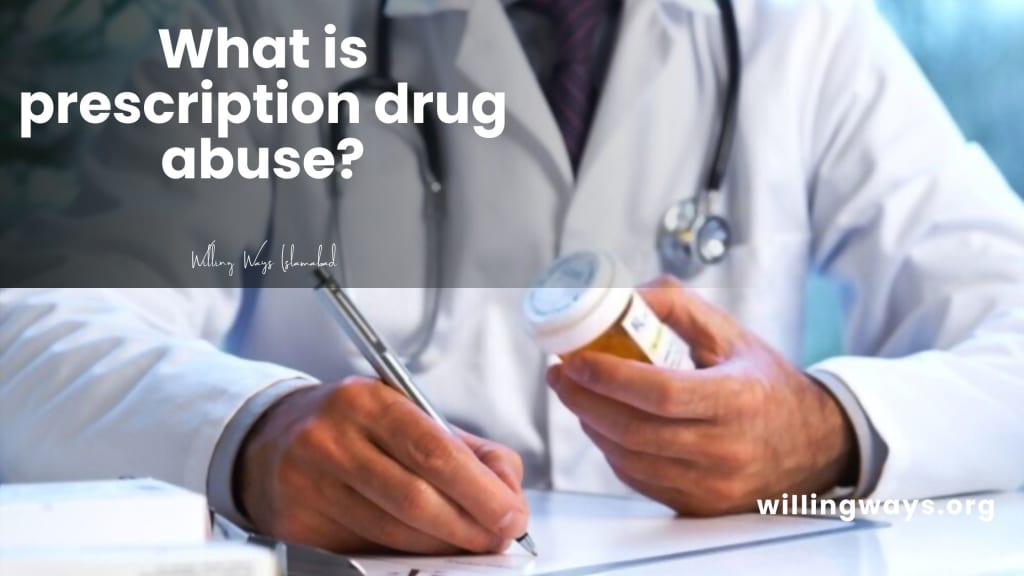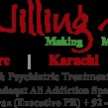What is prescription drug abuse?
Individuals can become dependent if they take a narcotic for an extensive period or take a lot of a narcotic

Physicians at the best addiction treatment center in Islamabad recommended chronic drug use and depression residential treatment when individuals abuse endorsed prescriptions. They might move their medication in a manner that the specialist doesn't tell. This incorporates taking more medication than they need or taking it when they don't require it. Or on the other hand, they might mishandle a solution intended for another person. Physician-endorsed illicit drug use can additionally happen when individuals blend medication in with liquor or different medications.
Physician recommended illicit drug use is a term that alludes to the ill-advised utilization of prescriptions ordered as "controlled substances" by the Medication Requirement Organization. Models incorporate drugs specialists recommend to treat agony, uneasiness, or rest. This can prompt complex issues, like medication communications, dependence, or excess. Medication communication happens when at least two medications respond to one another. It could make sedates less compelling or cause destructive aftereffects.
Most physician recommended drugs are protected and successful when you follow your PCP's headings for how to take the medication.
For what reason are more seasoned grown-ups in danger of doctor-prescribed illicit drug use?
Most more seasoned grown-ups who experience the ill effects of physician recommended chronic drug use do as such coincidentally. They take more medication than other age gatherings. As per the Substance Misuse and Psychological wellbeing Administrations Organization, around 3 of every ten individuals between ages 57 to 85 use something like five remedies. This expands the gamble for errors and chronic drug use.
Becoming older additionally dials back your body's capacity to ingest and channel drugs. This implies that a more seasoned grown-up could become dependent on or have incidental effects from a professionally prescribed medication at a lower portion than a more youthful grown-up.
Way to further developed wellbeing
An individual can mishandle any professionally prescribed drug. Old grown-ups regularly take two sorts of drugs with a high potential for enslavement.
- Narcotics are utilized to control torment. Models incorporate oxycodone (OxyContin), oxycodone with acetaminophen (Percocet), and hydrocodone with acetaminophen (Vicodin). Individuals can become dependent if they take a narcotic for an extensive period or take a lot of a narcotic.
- Benzodiazepines treat uneasiness, fits of anxiety, or sleep deprivation. Models incorporate diazepam (Valium), alprazolam (Xanax), clonazepam (Klonopin), and lorazepam (Ativan). Individuals can become dependent if they take the medication for a significant period.
Side effects of physician endorsed substance addiction can be difficult to perceive in more seasoned grown-ups. This is because they are like side effects of maturing. For example, disarray and cognitive decline are side effects of both.
Assuming you care for or invest energy with a more established grown-up, know about their medications and conduct. Next are advance notice signs that somebody might be mishandling physician endorsed drugs. If they:
- Get medicine for similar medication from two unique specialists.
- Fill a remedy for similar medication at two different drug stores.
- Take even more medication than they used to or take more than is told on the name.
- Take the medication at various times or more frequently than is told in the name.
- End up being more removed or furious.
- Seem confounded or neglectful.
- Frequently discuss a medication.
- Are hesitant to head off to some place without taking medication.
- Are protective when you get some medication information.
- Rationalize why they need medication.
- Store "extra" pills in their tote or their pocket.
- Sneak or conceal medication.
- Have been treated for liquor, medication, or doctor-prescribed chronic drug use before.
When to see a specialist
If you suspect that a more established grown-up is mishandling a professionally prescribed drug, contact their PCP immediately. Inform them regarding your interests. The specialist will probably plan to assess the individual. They can analyze assuming the issue is physician recommended chronic drug use. The specialist likewise will assist with deciding treatment.
Treatment choices for physician endorsed substance addiction change by an individual. It relies upon what medication is mishandled, the level of enslavement, and the gamble of withdrawing the drug. Treatment might incorporate direction, cure, or both.
Inquiries to pose to your primary care physician
- Do I take any prescriptions that could cause medication communication?
- How would it be advisable for me to respond if I feel like I've become subject to a medication?
- What is the most effective way to coordinate drugs so I don't commit an error?
- What are the side effects of physician recommended substance addiction?
- How can I say whether I want assistance?
About the Creator
Willing Ways
Willing Ways is the Best addiction treatment center in Pakistan. We are the pioneer in drugs & alcohol treatment centers with outstanding services and a history of 43 years. We deliver quality writing that is beneficial for you.






Comments
There are no comments for this story
Be the first to respond and start the conversation.